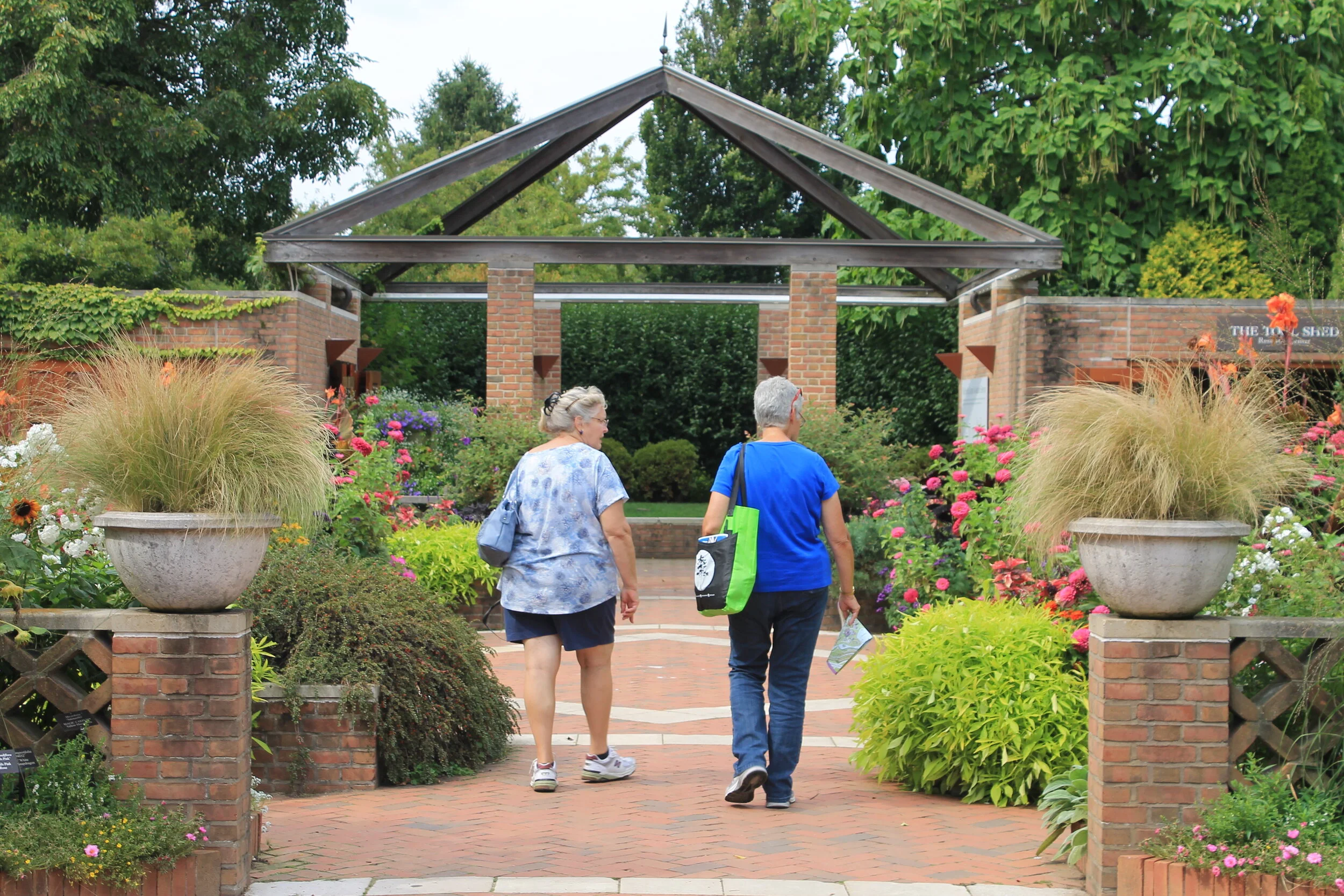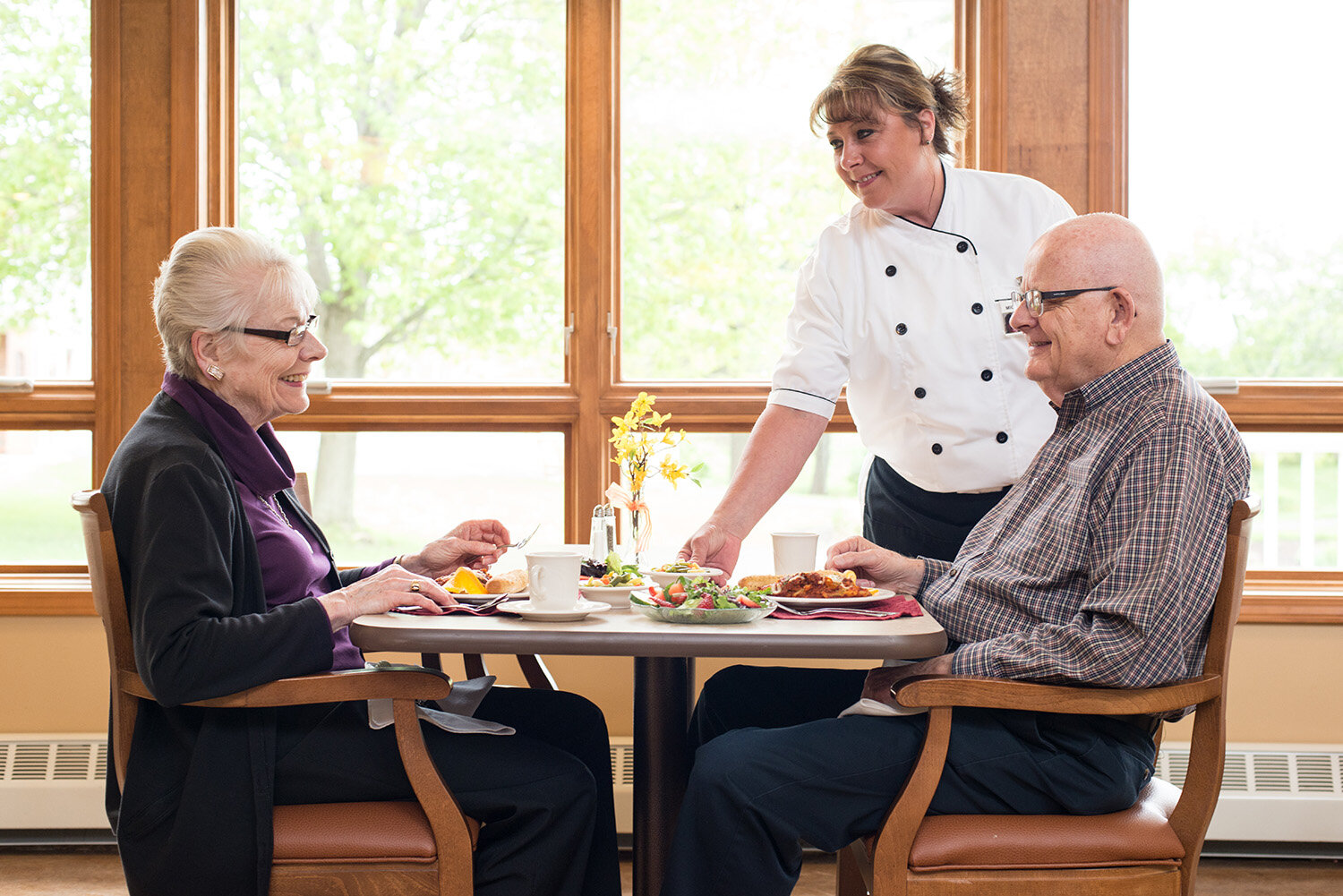February is not just about Valentine's Day; it is also American Heart Month when we focus on cardiovascular health. As we age, taking care of our hearts and prioritizing heart health becomes even more crucial. In this article, we will explore heart-healthy tips specifically tailored for seniors. Making small changes to our lifestyle and habits can protect our hearts, prevent heart disease, and enjoy a happy and healthy life.
A senior couple happily shares a healthy meal, including salad, orange juice, and tea, together in their home.
Understanding Heart Disease and its Risk Factors
Heart disease is the leading cause of death for both men and women, and it can occur at any age. However, the risk of developing heart disease increases as we get older. Multiple factors contribute to the development of heart disease, including health conditions, lifestyle choices, age, and family history. According to the Centers for Disease Control and Prevention (CDC), about half of all Americans have at least one of the critical risk factors for heart disease - high blood pressure, high cholesterol, and smoking.
Dietary Choices for a Healthy Heart
Eating a heart-healthy diet is crucial for maintaining good cardiovascular health. As seniors, we should focus on consuming foods high in fiber and low in saturated fats, trans fats, and cholesterol. Fresh fruits and vegetables should form a significant portion of our diet, while processed foods should be limited. Additionally, reducing salt intake can help lower blood pressure and decrease the risk of heart disease.
The Importance of Physical Activity
Regular physical activity is essential for maintaining a healthy heart. Engaging in moderate-intensity exercises, such as brisk walking or bicycling, for at least two hours and 30 minutes weekly can significantly reduce the risk of heart disease. Exercise strengthens the heart, improves blood circulation, and helps manage weight, cholesterol levels, and diabetes.
Limiting Alcohol Consumption and Tobacco Use
Excessive alcohol consumption and tobacco use are detrimental to heart health. Seniors should limit their alcohol intake to no more than two drinks per day for men and one drink per day for women. Quitting smoking is equally essential, as it can significantly reduce the risk of heart disease. If you need help stopping smoking, consult with your doctor for resources and support.
Managing Blood Pressure and Cholesterol Levels
High blood pressure and unhealthy blood cholesterol levels are major risk factors for heart disease. Seniors should monitor their blood pressure and cholesterol levels regularly. Lifestyle changes such as eating a heart-healthy diet, engaging in physical activity, and quitting smoking can help maintain normal blood pressure and cholesterol levels.
Maintaining a Healthy Weight
Maintaining a healthy weight is crucial for heart health. Being overweight or obese can increase the risk of heart disease and put extra stress on the heart and blood vessels. Seniors should strive to maintain a healthy weight through a combination of a balanced diet and regular exercise.
The Role of Sleep in Heart Health
Quality sleep is essential for overall health, including heart health. Poor sleep can lead to various negative changes in the body, including a weakened immune system, slower reactions, and an increased risk of heart disease. Seniors should aim for six to eight hours of sleep each night and establish a regular sleep routine.
The Mediterranean Diet: A Heart-Healthy Approach
The Mediterranean diet has been widely recognized as a heart-healthy dietary approach. It includes foods such as nuts, olive oil, white meat like chicken or fish, vegetables, and whole grains. This diet is not a commercial fad but a recommended lifestyle choice that promotes better heart health and lower rates of cardiovascular problems.
Stress Management for a Healthy Heart
Managing stress is vital for maintaining a healthy heart. While it may be challenging to eliminate stress, finding ways to reduce stress levels can significantly benefit heart health. Engaging in activities such as meditation, deep breathing exercises, and hobbies can help relieve stress and promote overall well-being.
Regular Health Check-ups
Regular health check-ups are essential for monitoring heart health. Seniors should schedule routine appointments with their healthcare providers to monitor weight, blood pressure, and cholesterol levels. These check-ups allow for early detection of any potential issues and provide an opportunity to discuss lifestyle modifications and treatment options.
The Importance of Social Connections
Maintaining social connections and engaging in meaningful relationships have been shown to impact heart health positively. Seniors should prioritize spending time with loved ones, participating in social activities, and joining community groups or clubs. These social connections provide emotional support, reduce stress, and promote a sense of well-being.
Additionally, living in a senior living community can make socialization with peers much easier to engage in regularly through activities, events, and committees.
Conclusion
Taking care of our heart is paramount, especially as seniors. By adopting a heart-healthy lifestyle that includes a balanced diet, regular exercise, stress management, and regular health check-ups, we can reduce the risk of heart disease and enjoy a happy and healthy life. Remember, it's never too late to prioritize your heart health and make positive changes. Start today and embrace a heart-healthy lifestyle for a brighter tomorrow.
"A healthy heart is the key to a vibrant and fulfilling life. Take care of it, and it will take care of you." - Unknown
If you or your senior loved one is ready to make the move to a senior living community, consider choosing Pines Village Retirement Communities. At Pines Village, we celebrate life by enriching the lives of older adults. We pride ourselves on our culture, which is driven by a passion for serving the residents, visitors, and staff of Pines Village as well as the greater Valparaiso community. Explore our senior apartment availability, learn more about our assisted living options, or contact us with any questions today!







